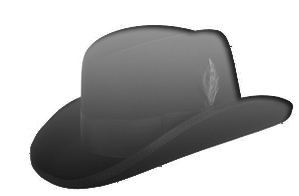





March brought John Kendal back to town with a few Devonshire studies and a kindling discontent with the three subjects he had in hand for the May exhibitions. It spread over everything he had done for the last six months when he found himself alone with his canvases and whole-hearted toward them. He recognized that he had been dividing his interest, that his ambition had suffered, that his hand did not leap as it had before at the suggestion of some lyric or dramatic possibility of color. He even fancied that his drawing, which was his vulnerable point, had worsened. He worked strenuously for days without satisfying himself that he had recovered ground appreciably, and then came desperately to the conclusion that he wanted the stimulus of a new idea, a subject altogether disassociated with anything he had done. It was only, he felt, when his spirit was wholly in bondage to the charm of his work that he could do it well, and he needed to be bound afresh. Literally, he told himself, the only thing he had painted in months that pleased him was that mere sketch, from memory, of the Halifax drawing-room episode. He dragged it out and looked at it, under its damaging red stripes, with enthusiasm. Whatever she did with herself, he thought, Elfrida Bell was curiously satisfying from an artistic point of view. He fell into a train of meditation, which quickened presently into a practical idea that set him striding up and down the room.
"I believe she would be delighted!" he said aloud, coming to a sudden standstill; "and, by Jove, it would be a kind of reparation!"
He delved into an abysmal cupboard for a crusted pen and a cobwebby bottle of ink, and was presently sitting among the fragments of three notes addressed, one after the other, to "Dear Miss Bell." In the end he wrote a single line without any formality whatever, and when Elfrida opened it an hour later she read:
"Will you let me paint your portrait for the Academy?
"P.S.—Or any other exhibition you may prefer."
The last line was a stroke of policy. "She abhors Burlington
House," he had reflected.
The answer came next day, and he tore it open with rapid fingers. "I can't think why—but if you wish it, yes. But why not for the Academy, since you are disposed to do me that honor?"
"Characteristic," thought Kendal grimly, as he tore up the note. "She can't think why. But I'm glad the Academy doesn't stick in her pretty throat—I was afraid it would. It's the potent influence of the Private View."
He wrote immediately in joyful gratitude to make an appointment for the next day, went to work vigorously about his preparations, and when he had finished smoked a series of pipes to calm the turbulence of his anticipations. As a neighboring clock struck five he put on his coat. Janet must know about this new idea of his; he longed to tell her, to talk about it over the old-fashioned Spode cup of tea she would give him—Janet was a connoisseur in tea. He realized as he went downstairs how much of the pleasure of his life was centering in these occasional afternoon gossips with her, in the mingled delight of her interest and the fragrance and the comfort of that half-hour over the Spode tea-cup. The association brought him a reminiscence that sent him smiling to the nearest confectioner's shop, where he ordered a supply of Italian cakes against the next day that would make an ample provision for the advent of half a dozen unexpected visitors to the studio. He would have to do his best with afternoon sittings, Elfrida was not available in the morning; and he thought compassionately that his sitter must not be starved. "I will feed her first," he thought ironically, remembering her keen childish enjoyment of sugared things. "She will pose all the better for some tea." And he walked on to Kensington Square.